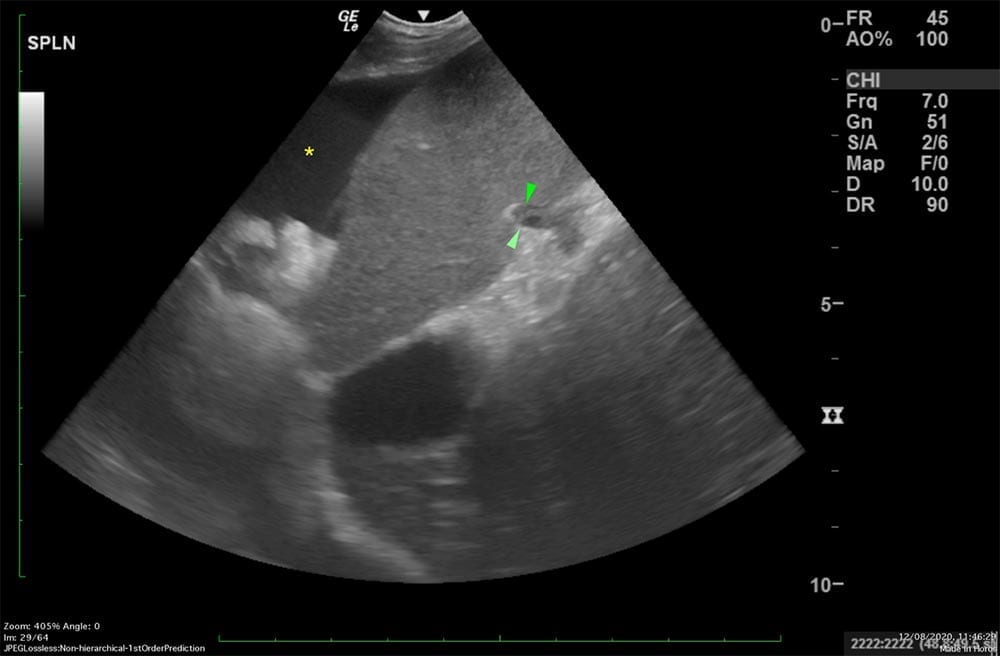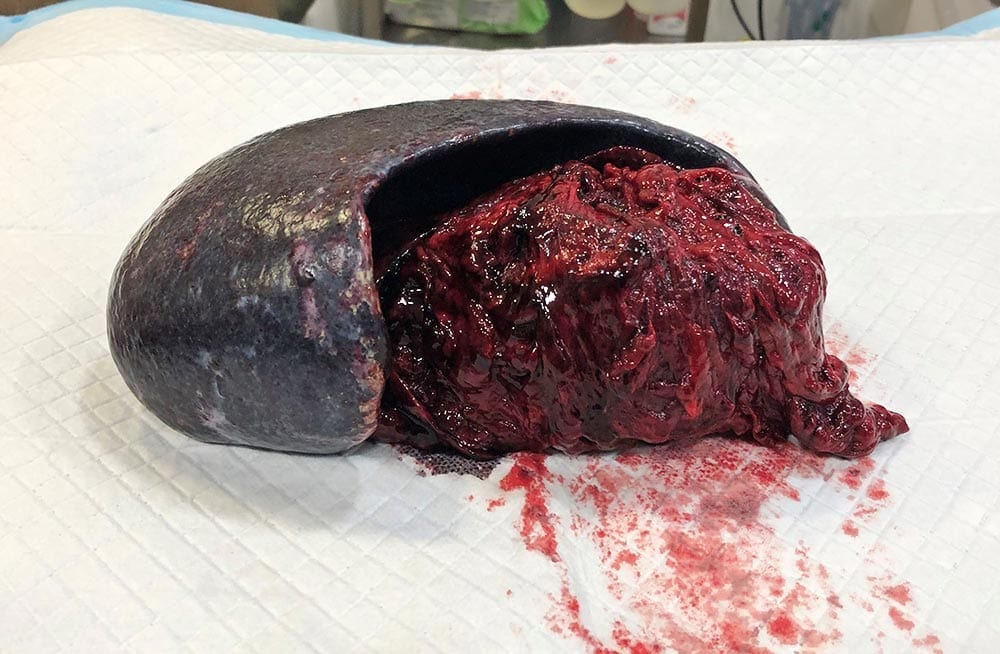Gus was lethargic and vomiting when initially examined by emergency vets, who also found he was acutely anaemic and had an abnormally low red blood cell count, fluid in his abdomen and an enlarged spleen.
He was stabilised and referred to us for further investigation of his unusual clinical signs.
Multidisciplinary approach
Our hospital manager, Luke Frewin, said a multidisciplinary approach was needed to find out why Gus was so ill.
“Our internal medicine consultant Sivert Nerhagen worked with our imaging specialist Ian Jones to try to untangle the case of Gus’ lost red blood cells and his enlarged spleen. Blood tests revealed Gus was still producing red cells, but losing them at a steady rate, while x-rays and an ultrasound scan confirmed his spleen was enlarged and that there was a small volume of fluid in his abdomen. A sample of that fluid contained red blood cells and neutrophils, suggesting inflammation, but there was not enough fluid present to suggest this was the cause of his dramatic anaemia.”
‘Race against time’
This was becoming a race against time as Gus’ red blood cell count was continuing to decrease rapidly and his body was clearly struggling to cope. He was extremely sluggish, and both his breathing and heart rates increased worryingly.
He was so poorly we needed to give him a blood transfusion and, at first, he responded well, but by the next morning his red blood cell levels had begun to drop again. His spleen had also become palpably larger, so Dr Ian Jones performed a second ultrasound, and this time the spleen appeared darker in appearance and was in an unusual position. He then examined the blood flow through the splenic vessels and identified an obstruction that was preventing blood flowing out of the spleen, meaning the spleen needed to be removed.
Spleen
Dr Janet McClaren, our head of surgery, took on the case and then discovered the cause of the problems when Gus underwent surgery.
Dr McClaren said: “An exploratory laparotomy on Gus found his spleen had become partially twisted around its own blood vessels, strangling the blood flow. I removed the spleen to prevent any more of Gus’ blood becoming trapped and the surgery was very successful.
“Gus recovered well. His red blood cell levels were monitored closely after surgery and did not drop, and he was soon back to his happy, sociable self.”
Adding such cases were uncommon in small dogs, Dr McClaren said: “Splenic torsions can occur spontaneously in large, deep-chested dogs such as German shepherd dogs and great Danes, but have only rarely been reported in smaller-breed dogs.”




